




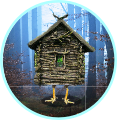
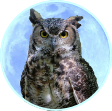
Lyon Sprague de Camp was one of the forefathers of contemporary humorous/light fantasy and sci-
Sprague de Camp was educated as an engineer and also wrote nonfiction, including Ancient Engineers. As he himself said, “The mere fact that a narrative depends for its appeal upon humour doesn't excuse the author from writing a good story. The yarn still needs structure, characterisation, movement, narrative hook, build-
His Harold Shea alternate world stories (which have a complicated publishing history, sometimes being republished as collections, as in The Complete Compleat Enchanter) include some intriguing premises, such as the idea that someone with knowledge of the worldview and beliefs of a culture (whether mythological or “real”) could figure out the details of what magic might work there, based on general magical beliefs such as the Law of Similarity (feathers and mention of birds in flying spells) and the Law of Contagion (voodoo dolls). But the results may not be exactly as expected. After employing a feather and doggerel spell to fly, Harold tries to make sure that the broom will land safely by using the phrase “like a dead leaf descending”: “The broom settled slowly, but remorselessly literal, carried the imitation of a dead leaf to the point of a dizzying whirl.” In these stories technology won’t work if the inhabitants of an alternate world don’t understand it or believe in it (such as the matches and gun that Harold takes with him in the first story). I prefer the stories set in folklore worlds (of Norse legends, the Finnish Kalevala, and ancient Ireland) rather than the ones based on somewhat esoteric literary works such as The Faerie Queene and Orlando Furioso.
Lest Darkness Fall is often considered his best work. Although billed as science fiction it’s actually science fantasy, dealing with the past not the future and similar in tone to his light fantasies. Archaeologist Martin Padway is abruptly transported to Rome in the first half of the sixth century A.D. He knows both classical Latin and Italian and stumbles through this complex stew of ethnicities and competing religions by using an ersatz language supposedly halfway between the two. In order to stave off the oncoming dark ages, he starts reinventing useful things (using Roman materials) and interferes with history (he knows what’s coming from his reading of Procopius, among others).
Some of Sprague de Camp’s novels are self-
Many of his stories have been out of print but are now being republished as ebooks.
Sprague de Camp wrote an incredible number of books (some with his wife, Catherine, and some with Fletcher Pratt): see the list of works on the websites to the left

Websites for L. Sprague de Camp:
https://www.fantasticfiction.com/d/l-
Fantasies of L. Sprague de Camp
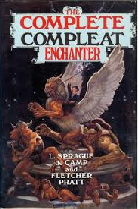
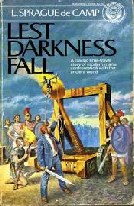
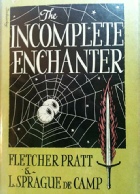
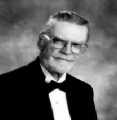
L. Sprague de Camp
1907-